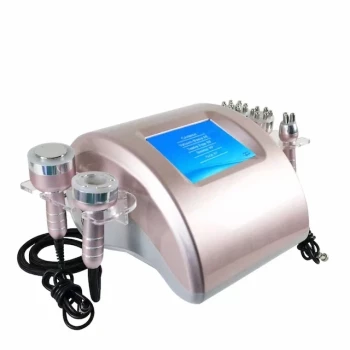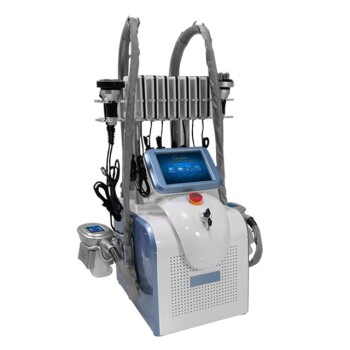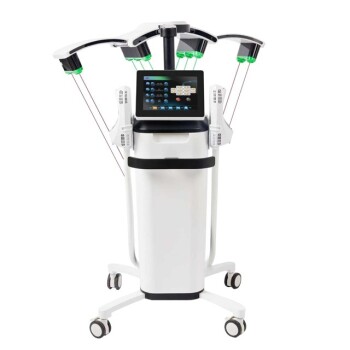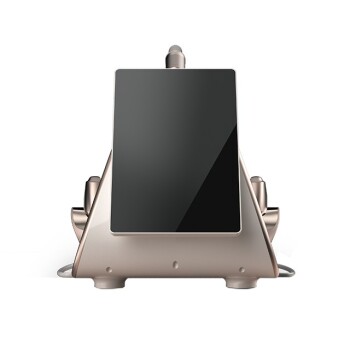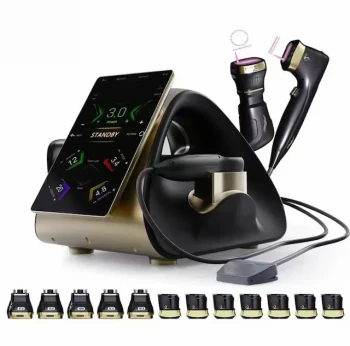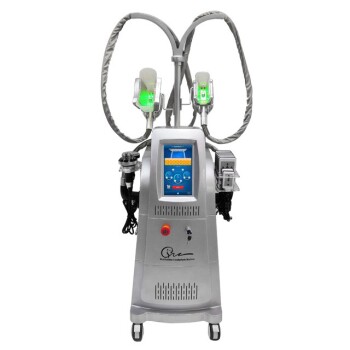In short, ultrasonic cavitation is not for everyone. Individuals with specific medical conditions, particularly those affecting the liver and kidneys, as well as those who are pregnant, have pacemakers, or possess metal implants in the treatment area, should avoid this procedure entirely. A thorough consultation with a qualified professional is non-negotiable to ensure your safety.
The core principle is simple: ultrasonic cavitation relies on your body's natural metabolic systems to process and eliminate the fat it releases. If these systems are compromised for any reason, the procedure is not only ineffective but potentially unsafe.
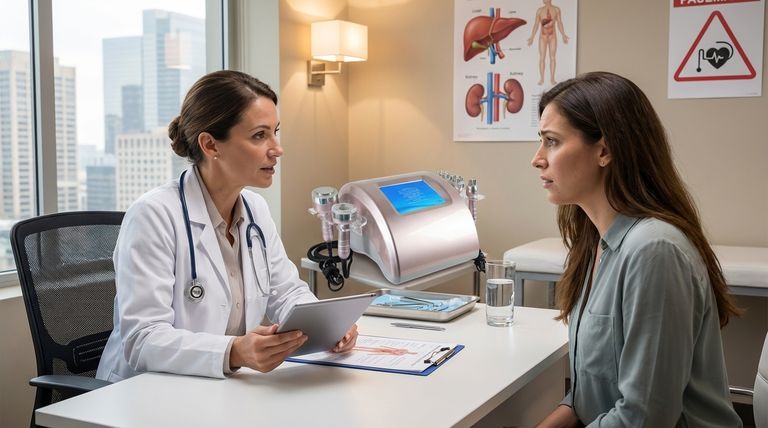
The Core Principle: Why Contraindications Exist
To understand who should not use ultrasonic cavitation, you must first understand how it works. The procedure is not magic; it is a biological process initiated by an external energy source.
How Cavitation Works: Releasing Stored Fat
Ultrasonic cavitation uses low-frequency sound waves to create microscopic bubbles in the fluid surrounding your fat cells. These bubbles rapidly expand and collapse, creating a pressure wave that ruptures the membrane of the fat cells (adipocytes). The fatty contents, primarily triglycerides, are then released into the space between your cells.
The Body's Burden: Processing the Released Fat
Once released, these triglycerides are transported by the lymphatic system to the liver. The liver then metabolizes them, treating them just like any other fat you would consume in your diet. They are either used for energy or excreted from the body. This is the critical step where contraindications come into play.
Absolute Contraindications: Who Must Avoid This Treatment
If the body's processing and filtering systems are impaired, undergoing cavitation can place an unacceptable strain on them. The following groups must avoid the procedure.
Individuals with Organ-Related Conditions
Because the liver and kidneys are the primary organs responsible for processing and filtering the released fat, anyone with a history of liver disease (like cirrhosis or fatty liver), kidney disease, or renal failure must not undergo this treatment. The same applies to those with significant heart conditions, as the process can impact lipid levels in the blood.
During Pregnancy and Breastfeeding
The effects of ultrasonic waves on a developing fetus are unknown, making this an absolute contraindication for pregnant women. It is also advised against for breastfeeding mothers, as the mobilized fats could potentially alter the composition of breast milk.
Those with Cancer or Compromised Immune Systems
Individuals with active cancer or a history of cancer should avoid cavitation. There is a theoretical concern that the increased lymphatic drainage stimulated by the treatment could risk spreading malignant cells. Similarly, those with autoimmune diseases or compromised immune systems should refrain.
People with Metal Implants or Pacemakers
The energy from the ultrasound device can interfere with or heat up metal implants located within the treatment area. This includes copper IUDs, pins, or plates. Critically, it can disrupt the function of electronic devices like pacemakers or cochlear implants, making it extremely dangerous for these individuals.
Skin Conditions or Open Wounds
The treatment should never be performed over areas with open wounds, inflamed skin, active infections, or severe skin conditions like psoriasis or eczema. Doing so can worsen the condition and increase the risk of adverse reactions.
Understanding the Risks and Limitations
Even for ideal candidates, it is essential to approach this treatment with a clear understanding of its limitations and potential downsides.
Ineffective Results
Success is heavily dependent on a healthy lifestyle. If you do not support the treatment with adequate hydration, a balanced diet, and exercise, the mobilized fat is likely to simply be re-deposited elsewhere in the body. It is a contouring tool, not a weight-loss method.
The Myth of "Zero Downtime"
While non-invasive, the procedure isn't entirely without side effects. It is common to experience temporary skin redness, increased thirst (as your body works to flush the fat), and mild swelling. These typically resolve quickly but should be anticipated.
The Critical Role of the Technician
The safety and effectiveness of your treatment are directly tied to the skill of the operator. An inexperienced technician may use incorrect settings or techniques, leading to poor results or, in rare cases, skin burns. Always verify the credentials and experience of your provider.
Making a Safe and Informed Decision
Your primary goal is to achieve your desired aesthetic outcome without compromising your health. Use the following guidelines to navigate your decision.
- If you have any chronic health condition: You must consult with your primary physician before considering this treatment. Their medical approval is more important than a provider's consultation.
- If you are generally healthy but have specific concerns: Insist on a thorough consultation with the cavitation provider where you can discuss your entire health history in detail. Do not proceed if you feel rushed or dismissed.
- If you are looking for a weight loss solution: Understand that this is a body contouring tool for stubborn fat pockets, not a method for significant weight reduction.
Ultimately, your health history dictates whether you are a candidate for ultrasonic cavitation.
Summary Table:
| Contraindication Group | Reason for Avoidance |
|---|---|
| Liver/Kidney Disease | Impaired fat metabolism & filtration |
| Pregnancy/Breastfeeding | Unknown effects on fetus/breast milk |
| Pacemakers/Metal Implants | Risk of device interference or heating |
| Active Cancer | Theoretical risk of spreading malignant cells |
| Open Wounds/Skin Infections | Can worsen skin conditions |
Ensure your clinic offers safe, effective body contouring treatments. At BELIS, we specialize in professional medical aesthetic equipment designed for safety and efficacy. Our ultrasonic cavitation machines are trusted by medical aesthetics clinics and premium beauty salons to deliver reliable results while prioritizing client safety.
Partner with BELIS to equip your practice with technology that protects both your clients and your reputation. Contact our experts today for a consultation on the right equipment for your needs.
Visual Guide
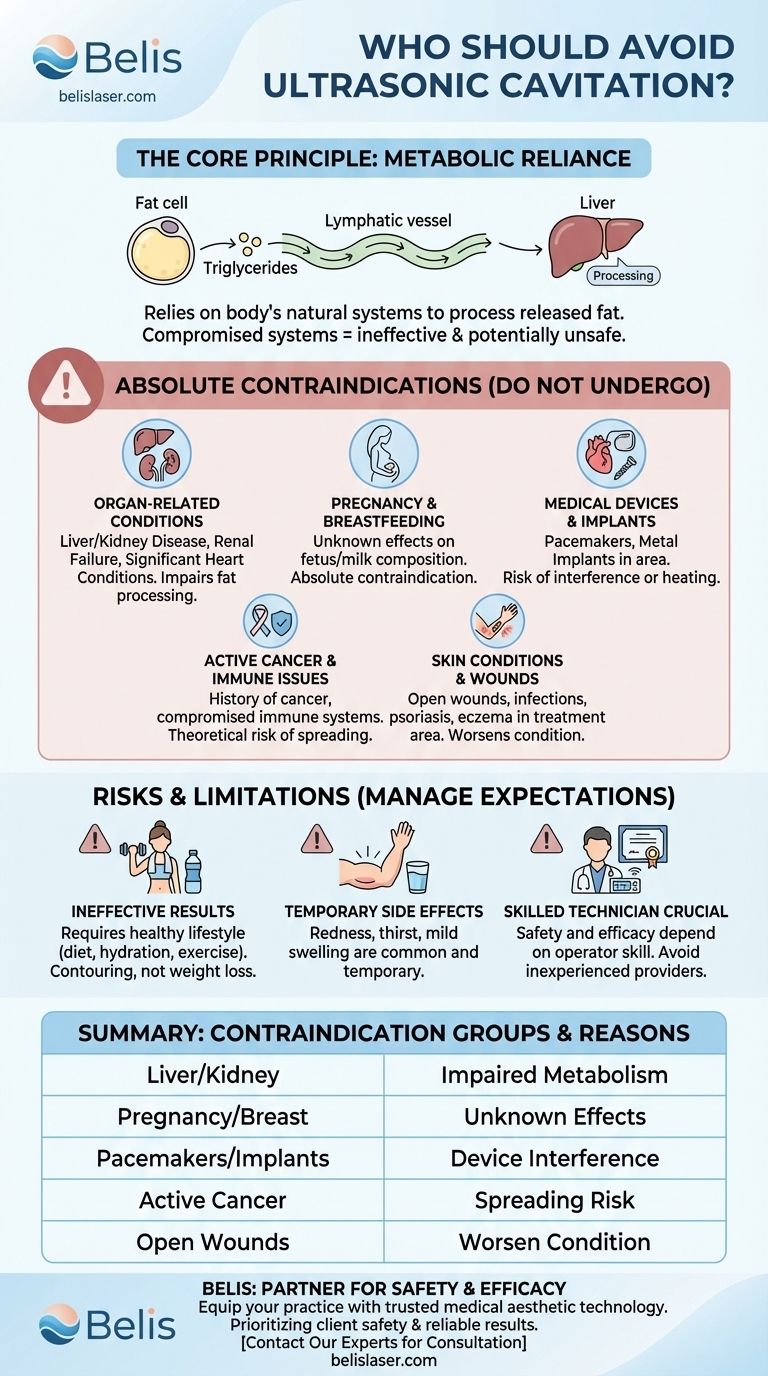
Related Products
- Ultrasonic Cavitation Radiofrecuency Machine for Body Slimming
- Cryolipolysis Fat Freezing Machine and Ultrasonic Cavitation Device
- Cryolipolysis Fat Freezing Machine Ultrasonic Cavitation Fat Reducing Device
- EMSlim Body Sculpting Machine EMS Body Slimming Machine
- Cryolipolysis Cavitation Machine Fat Cavitation Machine
People Also Ask
- What are the absolute contraindications for undergoing ultrasonic cavitation treatment? Essential Safety Guide
- Does ultrasonic cavitation pose a risk of damaging internal organs? Learn the Safety Facts & Benefits
- What other treatments can be combined with ultrasonic cavitation? Maximize Results with Synergistic Therapies
- What is the primary function of ultrasonic cavitation in fat reduction? Unlock Non-Surgical Body Contouring Secrets
- How long does an ultrasonic cavitation session last? Optimal Timelines for Maximum Body Contouring Results
- How effective is ultrasonic cavitation? Transform Stubborn Fat into Sculpted Contours with Non-Surgical Science
- What is the recovery time following an ultrasound cavitation treatment? Experience Zero Downtime and Instant Results
- How often should you do ultrasound cavitation? Master the 72-Hour Rule for Optimal Results
